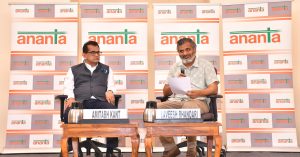What may send alarm bells ringing in Japan and USA is the fact that China and Russia last week decided to consult and coordinate with each other on the military use of Artificial Intelligence. This Sino-Russian collaboration may compel USA and Japan to forge closer alliance in high-tech sector. The United States has called for close trilateral security coordination with South Korea and Japan on criticizing North Korea’s recent cruise missile launches as “deeply destabilizing”. The U.S. Centers for Disease Control and Prevention (CDC) has opened its East Asia and Pacific regional office in Tokyo on Monday (Feb 5), aiming to shore up its ability to respond quickly to a future public health emergency in the region. Meanwhile, Vietnam has decided to have balanced foreign policy approach to avoid any confrontation with China amid Hanoi’s growing ties with the USA. In election bound Indonesia political games are intensifying. Indonesia’s top security affairs minister and vice-presidential candidate Mahfud MD announced his resignation citing partisanship. In Thailand the civilian-led government is now under pressure to scale back the armed forces after nearly a decade of military rule, but the drive is sure to face pushback from the country’s politically powerful generals.
Russia and China compare notes on ‘military use of artificial intelligence’
South China Morning Post | 4th February 2024
China and Russia have agreed to consult and coordinate with each other on the military use of artificial intelligence, a technology that is becoming a new front in Beijing’s rivalry with Washington. During talks in Beijing on Thursday (February 1), departmental officials from the two countries had “a detailed exchange of assessments” of the use of AI technology for military purposes, the Russian foreign ministry said in a statement on Friday.
Yonhap | 6th February 2024
The United States highlighted its focus on close trilateral security coordination with South Korea and Japan on Monday (February 5), criticizing North Korea’s recent cruise missile launches as “deeply destabilizing”. Pyongyang has conducted four rounds of cruise missile launches this year, including the test-fire of a submarine-launched ballistic missile, amid questions over how to rein in such cruise missile launches that are not subject to U.N. Security Council resolutions. “These kinds of actions by the DPRK are deeply destabilizing and they are unhelpful and they contribute to greater risk in the region,” State Department Deputy Spokesperson Vedant Patel said during a press briefing.
South China Morning Post | 4th February 2024
Vietnam’s low-key approach to maritime issues and its non-ally status with the United States have ensured that ongoing naval rows with Beijing in the South China Sea are on a more even keel compared with confrontations over similar disputes between the Philippines and China. Hanoi also has the ability to isolate maritime issues from other bilateral ones, analysts say.
Senior Indonesian minister resigns in protest over alleged partiality ahead of 2024 election
Strait Times | 1st February 2024
Indonesia’s top security affairs minister and vice-presidential candidate Mahfud MD announced his resignation on Jan 31. The move was described by his chief campaign spokesman as a protest against partiality shown by parties who are openly taking sides for the Feb 14 general election. Indonesia is gearing up to hold a three-way presidential election, contested by Defence Minister Prabowo Subianto, who is pairing up with President Joko Widodo’s elder son, Mr Gibran Rakabuming Raka. The other two pairings are former Central Java governor Ganjar Pranowo, who is on the same ticket with Professor Mahfud, and former Jakarta governor Anies Baswedan, who is running with Mr Muhaimin Iskandar, chairman of a popular Islamic party.
Thailand faces bitter battle over downsizing powerful military
Nikkei Asia | 6th February 2024
Thailand’s civilian-led government is under pressure to scale back the armed forces after nearly a decade of military rule, but analysts warn that the drive is sure to face pushback from the country’s politically powerful generals. A proposed defense budget that calls for increased spending has led the opposition Move Forward Party and some Thai media to accuse the Pheu Thai Party, which heads the 5-month-old coalition government, of reneging on an election pledge to downsize Southeast Asia’s second-biggest military, behind Vietnam.
U.S. CDC opens regional office in Tokyo
Japan Times | 5th February 2024
The U.S. Centers for Disease Control and Prevention (CDC) opened its East Asia and Pacific regional office in Tokyo on Monday (Feb 5), aiming to shore up its ability to respond quickly to a future public health emergency. The regional office, located inside the U.S. Embassy in Tokyo, will collaborate with 26 countries and territories in the region, including Japan, South Korea, Mongolia, Australia, New Zealand and Pacific Island nations.























